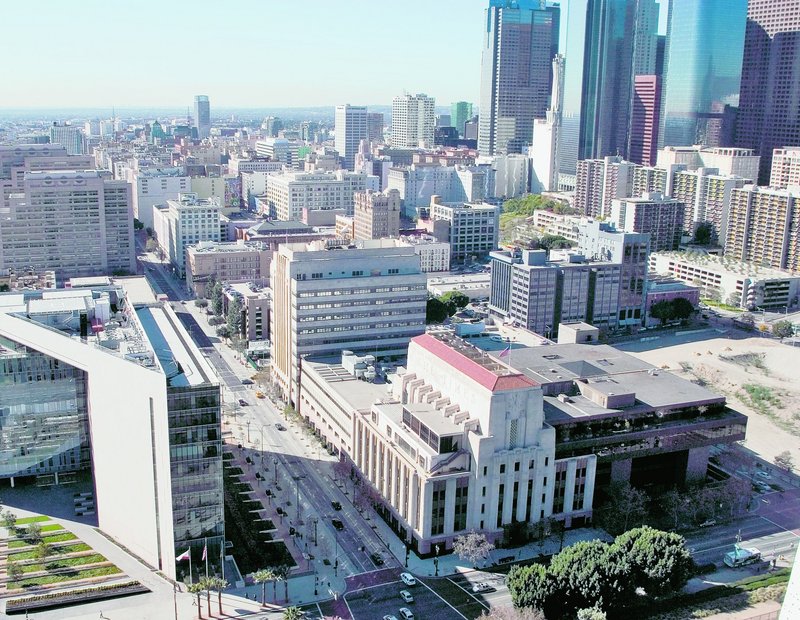CHICAGO – The newspaper industry is starting to meet its new bosses — the hedge funds and banks that are moving in as rich family owners and button-down executives move out.
While the objectives of these new owners remain unclear, insiders say the transition period promises more upheaval at newspapers just as they begin to emerge from bankruptcy.
Over the past year, stealthy distressed-debt hedge funds like Angelo, Gordon & Co., Alden Global Capital and Oaktree Capital Management have taken major positions in bankrupt newspaper companies such as Tribune Co., owner of the Chicago Tribune, and Philadelphia Newspapers Inc., owner of the Philadelphia Inquirer.
Their basic strategy: Quietly buy up as much cheap, delinquent debt as possible and then fight it out in bankruptcy court for a lucrative settlement that transforms the debt into a large share of company stock.
Experts say it is unlikely that any single fund has amassed enough of a stake to take outright control of one or more publishers. And they are hardly acting in concert.
But alliances of like-minded funds and big banks like JPMorgan Chase, which have also received significant chunks of equity through restructurings, could give nontraditional investors like Angelo Gordon and Alden unusual clout over a wide swath of the newspaper industry.
Interviews with close observers and people briefed by some of the funds say that they tend to see little remaining upside in cost cutting. They also profess to recognize that quality, branded journalism still draws advertisers and, therefore, is worth preserving.
But because they are opportunistic traders by nature, not long-term owners, their presence is likely to be disruptive. Their objective from Day One will be seeking the most profitable way to turn their investments back into cash. And that will likely mean a restless quest for value-creating exercises like spinoffs, acquisitions, recapitalizations and other sorts of transactions that will keep the newspaper industry in a state of flux.
One area ripe for deals may be Southern California. Sources close to the situation say that in 2008, before each filed for Chapter 11 bankruptcy, Tribune Co. and Freedom Communications Inc. held talks about Tribune’s Los Angeles Times buying Freedom’s neighboring Orange County Register. Now that Angelo Gordon and JPMorgan are likely to emerge as big owners of both companies, the sources say, talks will resume with enthusiastic support. Exploring other options for consolidating regional newspaper assets will surely be on the table.
Neither Tribune Co. nor James Dunning Jr., Freedom’s newly appointed board chairman, would comment on the conversations. And the sources noted that none can resume until Tribune Co. emerges from Chapter 11. (Freedom already has.)
But Dunning said Angelo Gordon, Alden and Freedom’s other new owners have charged him with exploring ways to boost the company’s value so they can monetize their investments.
“All things are on the table,” he said. “They are highly inquisitive and want us to be also.”
One thing that most observers can agree on is that the distressed-debt funds’ interest in newspapers has little to do with what they publish.
Unlike the media barons of old who often basked in newspapers’ civic influence, these funds are economic animals, devout contrarians who unemotionally flock to troubled companies where investor sentiment has ebbed to irrational lows.
The distressed-debt funds are hardly alone. Ever since industry financials hit bottom a little more than a year ago, conventional stock market investors have sent shares of publishers like Gannett Co. and McClatchy Co. through the roof. Chicago’s Ariel Investments has taken a ride up through major stakes in Gannett, McClatchy and Lee Enterprises Inc. Last month, JPMorgan said it had increased its Gannett stake to 10.2 percent from 2.2 percent.
The assumption behind these investments, analysts say, is that the newspaper industry was so beaten down during the crisis that it became a bargain. Most publishers had cut costs so dramatically that any improvement in revenue as the economy returned to health would fall to the bottom line.
That bet has largely paid off for both conventional investors and the distressed-debt funds, as both the equity and the debt of newspapers has soared.
Many industry experts agree that the next step in restructuring the sector is the sort of asset shuffling and consolidation that often transforms industries after they’ve been softened up by a severe downturn.
The natural tension for funds like Angelo Gordon, however, is that they don’t have unlimited time to wait for their investments to bear fruit. Their compensation and fee structure is generally based on raising a fund, investing it to generate 20 percent to 30 percent annual returns and then monetizing those returns over a period of a few years.
Despite their time constraints, many believe the hedge funds will be forced to remain patient if they want to reap what they’ve sown in newspapers.
“This will take some time to be cultivated,” Dunning said. “They realize they can’t be short-order cooks.”
Send questions/comments to the editors.



Success. Please wait for the page to reload. If the page does not reload within 5 seconds, please refresh the page.
Enter your email and password to access comments.
Hi, to comment on stories you must . This profile is in addition to your subscription and website login.
Already have a commenting profile? .
Invalid username/password.
Please check your email to confirm and complete your registration.
Only subscribers are eligible to post comments. Please subscribe or login first for digital access. Here’s why.
Use the form below to reset your password. When you've submitted your account email, we will send an email with a reset code.